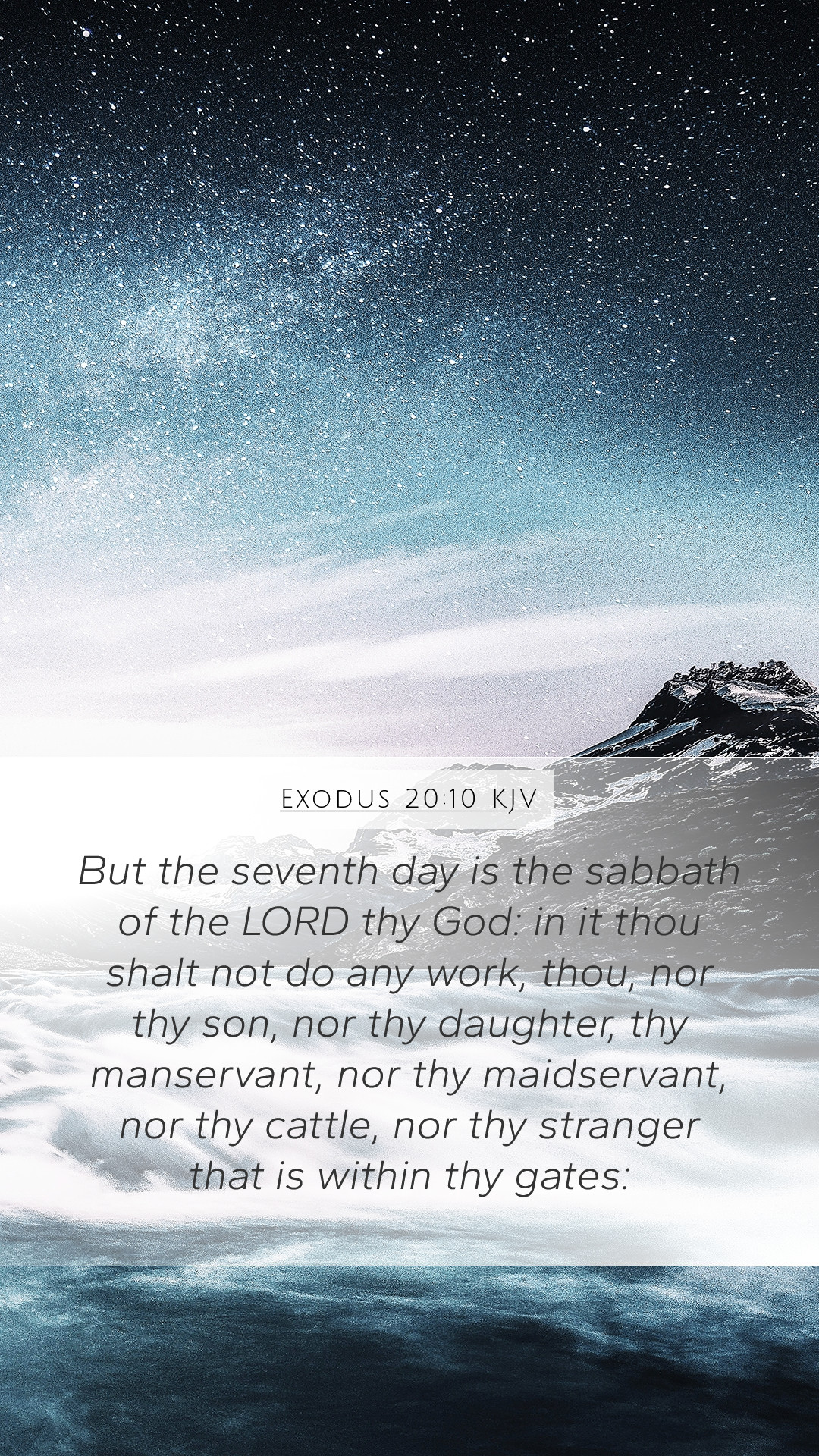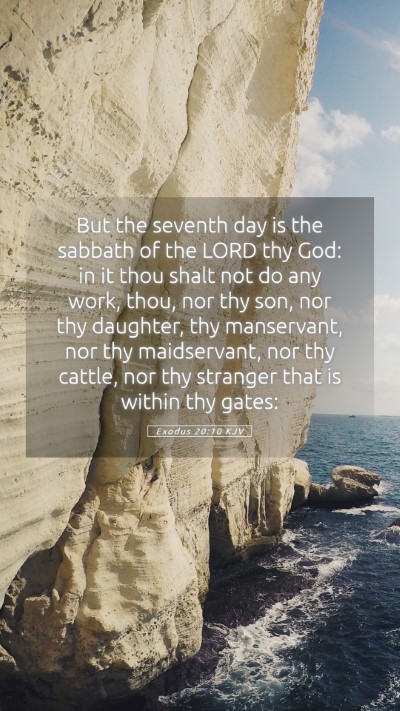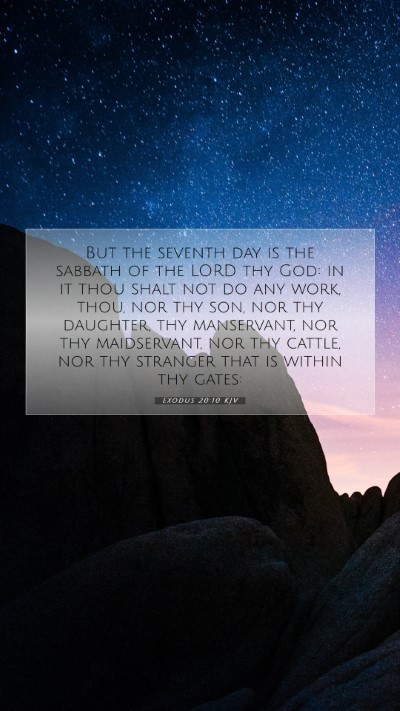Understanding Exodus 20:10
Bible Verse: Exodus 20:10
Content: "But the seventh day is the sabbath of the LORD thy God: in it thou shalt not do any work, thou, nor thy son, nor thy daughter, thy manservant, nor thy maidservant, nor thy cattle, nor thy stranger that is within thy gates."
Meaning and Interpretation
This verse is a part of the Ten Commandments, where God outlines the principles of living a life that honors Him. The commandment emphasizes the sanctity of the Sabbath, a day of rest. Understanding this verse requires a deeper insight into its implications for worship, work, and communal life.
Key Insights from Public Domain Commentaries
- Matthew Henry's Commentary:
Henry stresses the importance of the Sabbath as a day set apart for rest and worship. He notes that it is not just for personal benefit but also for the benefit of those under one's authority, highlighting the communal aspect of honoring the Sabbath.
- Albert Barnes' Notes:
Barnes emphasizes that the command prevents all sorts of labor on the Sabbath. He argues that this day is not merely a suggestion but a divine command, suggesting that proper observance leads to spiritual renewal and reflection.
- Adam Clarke's Commentary:
Clarke elaborates on the meaning of 'work', indicating it encompasses all forms of labor. He points out that rest on the Sabbath aligns with God's own rest after creation, reinforcing the theological significance of this day.
Biblical Exegesis
The verse is situated within the context of Israel's covenant with God. The command for a day of rest serves not only as a physical reprieve but also a spiritual commitment to remember and honor God as the Creator. It lays the groundwork for subsequent interpretations found in both Old and New Testaments.
Historical Context
In ancient Israel, the Sabbath was a radical departure from surrounding cultures that did not observe a regular day of rest. It provided a structured time for reflection on God's presence and provision in their lives—a concept that could be applied even today in contemporary settings.
Application of the Verse
For believers today, this command can still inform our lives. It prompts us to establish boundaries that allow for rest and spiritual rejuvenation amidst a busy lifestyle.
- Rest: Understanding the significance of resting physically and spiritually.
- Worship: Setting aside time for devotion and community worship.
- Family and Community: Engaging in acts that benefit family and friends during designated times of rest.
Additional Bible Cross References
- Genesis 2:2-3 - God's rest after creation.
- Exodus 31:14 - The seriousness of keeping the Sabbath.
- Mark 2:27 - Jesus teaches about the Sabbath for man, not man for the Sabbath.
Conclusion
In conclusion, Exodus 20:10 serves as a reminder of the sacredness of the Sabbath and its intended purpose in our spiritual lives. By studying the interpretations and applications of this verse, we gain a clearer picture of what it means to engage with Scripture deeply, particularly in our modern context.
Further Bible Study Tools
For those interested in delving deeper into Bible verse interpretations and commentary, consider utilizing:
- Bible Study Guides: Structured lessons that explore various aspects of Scripture.
- Online Bible Study: Interactive platforms for discussion and learning.
- Bible Study Resources: Books and materials that provide insights into specific texts.


